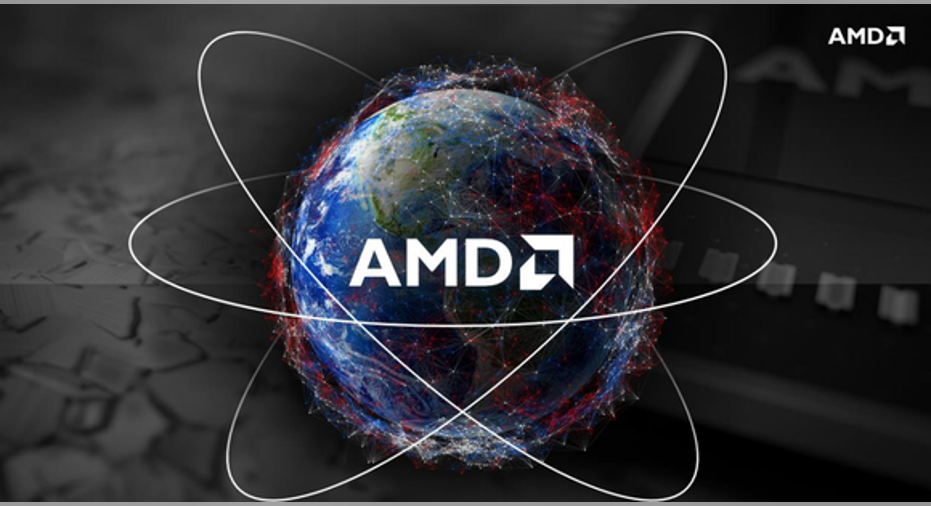Advanced Micro Devices, Inc.'s Best Product in 2016 So Far

Image source: AMD.
By virtually any measure, 2016 has been fantastic for AMD (NASDAQ: AMD) shareholders. Year-to-date, AMD stock has risen nearly 160%, and is currently trading near levels not seen since 2012.
Why has AMD performed so spectacularly? Although a number of factors have gone in AMD's favor this year, much of its rally can be traced to one product: the Radeon RX 480.
Targeting budget buyers
The market for dedicated graphics processors is dominated by just two companies: AMD and NVIDIA (NASDAQ: NVDA). Of the two, AMD is the smaller player. Last quarter, around 10 million graphics cards were shipped worldwide, of which about 30% were powered by AMD's chips, according to Jon Peddie Research. The remaining 70% relied on chips from rival NVIDIA.
But that 30% is a notable improvement from last year. In the second quarter of 2015, AMD captured just 18% of the graphics card market. That upswing could continue, led by AMD's new family of processors.
In June, AMD unveiled three graphics processors based on its new Polaris architecture: the Radeon RX 480, RX 470, and RX 460. As the flagship card in AMD's lineup, the RX 480 is the most intriguing. It retails for just $199, but is able to power virtual reality headsets, including the HTC Vive and Oculus Rift.
AMD shares have risen nearly 70% since the RX 480 was officially unveiled. It isn't the most powerful graphics card on the market, but it offers an economical way to experience VR.
"The launch of our new Polaris-based RX 480 GPUs at the end of June...helped contribute to our highest desktop channel GPU shipments since the fourth quarter of 2014," said AMD CEO Lisa Su on the company's July earnings call.
Demand for VR is expected to surge
For investors interested in VR, AMD is one of the few companies offering significant exposure. Anyone pursuing a high-end virtual reality experience must buy a graphics processor. When they do, there's a good chance they'll buy one from AMD -- most likely the RX 480.
Interest in VR has skyrocketed in recent months, and demand for VR headsets is expected to surge in the years ahead. Research firm IDC projects that shipments of VR headsets will approach 65 million by 2020, up from about 9.6 million this year.
AMD's business has shown signs of improvement in 2016, but much of its rally may be predicated on investors projecting future dominance. Last quarter, AMD's revenue rose, but only modestly, inching up just over 9%. At the same time, it turned an operating loss into positive operating income, but only on an adjusted basis -- and even then, it only earned $3 million.
Rival NVIDIA is offering a suite of superior products. Currently, AMD has absolutely nothing in its arsenal that can hold its own with NVIDIA's flagship GTX 1080. Fortunately for AMD, the GTX 1080 is about three-times more expensive.But NVIDIA also offers competing products at commensurate price points, including the recently released GTX 1060 3GB.
But a rising tide could lift all boats. Even if AMD remains a secondary player in the graphics processor market, it could benefit from broadly growing demand, spurned on by widespread VR adoption.
The RX 480 isn't the best graphics card on the market, but it offers solid performance at an attractive price point. For investors, it gives them a reason to believe in AMD's graphics business. It's hard to think of a better, or more important product, AMD has released this year.
A secret billion-dollar stock opportunity The world's biggest tech company forgot to show you something, but a few Wall Street analysts and the Fool didn't miss a beat: There's a small company that's powering their brand-new gadgets and the coming revolution in technology. And we think its stock price has nearly unlimited room to run for early in-the-know investors! To be one of them, just click here.
Sam Mattera has no position in any stocks mentioned. The Motley Fool owns shares of and recommends Nvidia. Try any of our Foolish newsletter services free for 30 days. We Fools may not all hold the same opinions, but we all believe that considering a diverse range of insights makes us better investors. The Motley Fool has a disclosure policy.



















